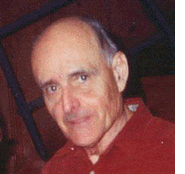
Biography ROBERT E
FUNK, 70, Archaeologist Emeritus of New York
State, died unexpectedly on September 25, 2002, in
Albany, NY. He was born in Rome, NY, received BA
(1953), MA (1955), and PhD (1966) degrees in
Anthropology from Columbia University. Funk had
technical training at the Indiana University field
school at Angel Mounds, under Glenn Black, and was a
field assistant at Dzibilchaltun for two seasons. In
1960 he began 33 years of employment at the New York
State Museum when he joined William A. Ritchie’s
settlement pattern project. Upon the latter’s
retirement in 1971 Funk was appointed New York State
Archaeologist, a position he held until stepping
down early. This move enabled Funk to maintain
highly active involvement in fieldwork and
scholarship. He eventually rejoined the State Museum
as a research associate. ROBERT E
FUNK, 70, Archaeologist Emeritus of New York
State, died unexpectedly on September 25, 2002, in
Albany, NY. He was born in Rome, NY, received BA
(1953), MA (1955), and PhD (1966) degrees in
Anthropology from Columbia University. Funk had
technical training at the Indiana University field
school at Angel Mounds, under Glenn Black, and was a
field assistant at Dzibilchaltun for two seasons. In
1960 he began 33 years of employment at the New York
State Museum when he joined William A. Ritchie’s
settlement pattern project. Upon the latter’s
retirement in 1971 Funk was appointed New York State
Archaeologist, a position he held until stepping
down early. This move enabled Funk to maintain
highly active involvement in fieldwork and
scholarship. He eventually rejoined the State Museum
as a research associate.
Funk led extensive archaeological field investigations in the Susquehanna, Hudson, and Mohawk, river valleys and on Fishers Island, NY, off the coast of Connecticut. He left nearly completed books about sites in the last three of these areas. Through field schools he trained a generation of archaeologists. Some he mentored through graduate studies at the University at Albany. Bob Funk earned the respect of professional and avocational colleagues with his vast contribution to the prehistory of the Northeast, his enthusiasm, inclusiveness, and generosity with his time and knowledge. He contributed a humorous autobiography to a two-volume 1996 Festschrift honoring his retirement. Funk’s research is notable for the use of rigorous stratigraphic control in deep deposits to clarify the succession of archaeological cultures. During doctoral research his excavations at the Sylvan Lake rockshelter reversed Ritchie’s sequence of the Narrow-point (Lamoka) tradition preceding the Laurentian tradition in the Hudson Valley. He greatly advanced paleoenvironmental and geological research in reconstruction of the adaptive contexts of New York’s prehistoric inhabitants. His work at the Paleo-Indian quarry-workshop-campsite on West Athens Hill in the Hudson Valley epitomizes an early-culture concentration that brought forth Archaeological and Paleoenvironmental Investigations in the Dutchess Quarry Caves, Orange County, New York (1994, with David W. Steadman) and many related articles and reviews. Funk’s books include three classics: Aboriginal Settlement Patterns in the Northeast (1973, with William A. Ritchie), Recent Contributions to Hudson Valley Prehistory (1976), and Archaeological Investigations in the Upper Susquehanna Valley, New York State (2 volumes, 1993 and 1999, with several contributing authors). Funk was instrumental in the development of the life-group exhibitions in the State Museum’s Native Peoples of New York Hall, which were based to a large degree on the results of his and Ritchie’s archaeological research. With John E. Pfeiffer he designed a coastal prehistory exhibit at the H. L. Ferguson Museum on Fishers Island. Bob is survived by his wife Nadine Fowers Funk,
son Alfred, daughter-in-law Latisha Azweem, his
sister Nancy Savage, and her daughter, Marlene.
The family requests that contributions in Bob’s
honor be sent to the Robert E. Funk Memorial
Archaeology Foundation, administered by the New
York State Museum Institute, and the two statewide
organizations, the New York Archaeological Council
and the New York State Archaeological Association,
to support research in New York through a grants
program. (Christopher Lindner, John P Hart,
Beth Wellman) |
|
| The Funk Foundation is a 501c(3) non-profit organization. Donations are welcomed and are tax deductible. |